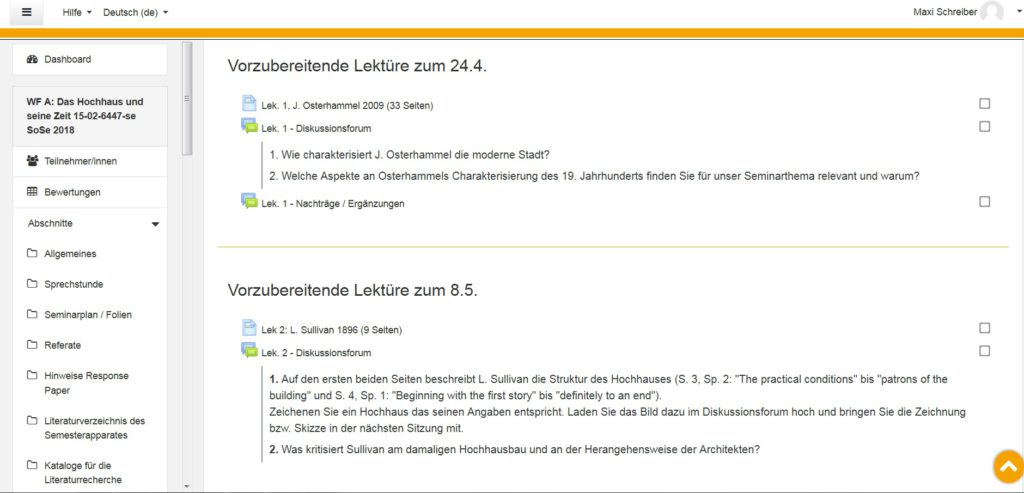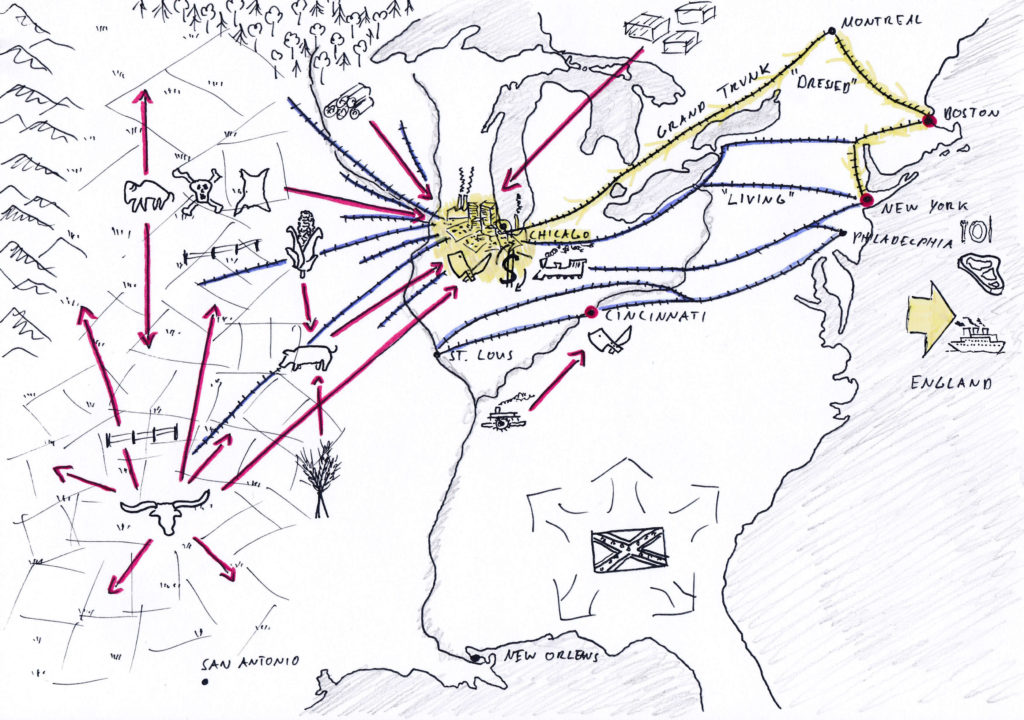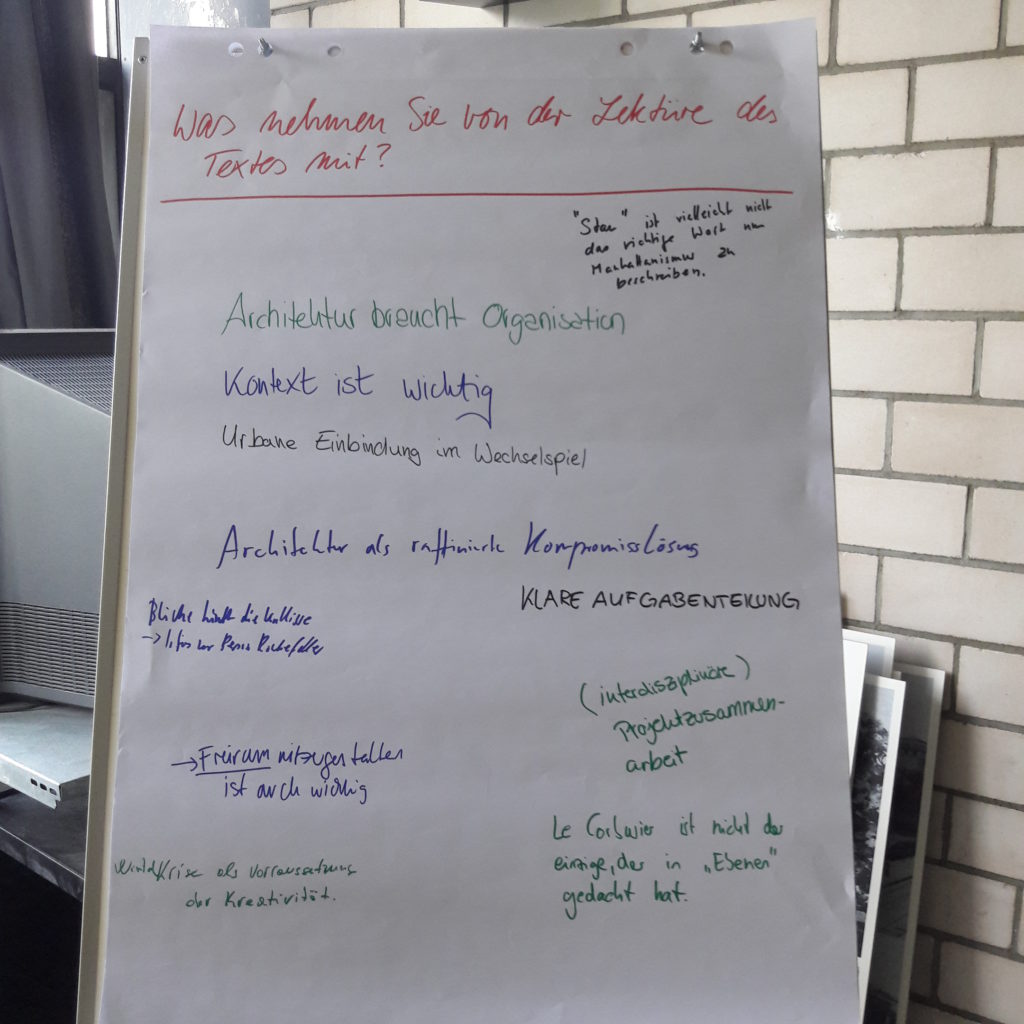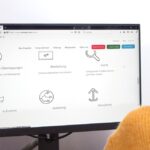An experience report on the Master’s seminar „The Skyscraper and its Time“ at the Department of Architecture by Dr. Maxi Schreiber
Benefits of the forum
The forum is a discussion platform in Moodle that can be used to prepare for reading materials (texts such as articles and individual chapters from collective works). Questions are posted in the forum that promote the understanding of the text and at the same time encourage a well-founded discussion. This means that participants in the seminar can be assumed to have knowledge of the respective text and discuss it at a deeper level.

Profile of the course
The aim of my course „The Skyscraper and its Time“ was to teach students the prerequisites of American high-rise construction in the late 19th and early 20th centuries and to raise their awareness of the historical context of these impressive buildings. This was done in two ways in the seminar. On the one hand through the discussion of reading texts, and on the other through short talks in which examples of buildings were presented and discussed. This was to introduce the students to landmark buildings and at the same time critically analyse the historical and aesthetic conditions that make the construction of high-rise buildings possible. Knowledge of the historical context is achieved by reading sociological, environmental and global historical and art-historical literature. That was why the seminar conditions included reading various texts from these disciplines, which students were to do at home in preparation. These achievements were a condition for active participation, and thus a prerequisite for the successful completion of the seminar.
Preparation and assignments
I posed the reading assignments (average about 35 pages per unit) in a 14-day cycle. Students had to read a total of six texts in the seminar. I posted two questions on each reading assignment in the forum (fig. 1). The first question referred to their comprehension of the text and asked about certain aspects that were important for the seminar topic (e.g. „How does J. Osterhammel characterise the modern city?“). The second question was more openly formulated, and asked the students‘ opinions on a thesis or context that emerged from the text (e.g. „What aspects of Osterhammel’s characterisation of the 19th century do you find relevant to our seminar topic and why?“).

Another way to promote comprehension and to remember the content and substance of a text was with a mind map or drawing (fig. 2). This option is a good one to use with foreign-language texts. It makes it a little easier to read what can be challenging texts. The students can also use different methods, and they have the chance to activate different thought processes. The students posted their answers or thoughts on the questions in the forum. The deadline for the posts was the day before the seminar so I could read the discussion papers before the session. I put the questions and the reading texts in the forum in plenty of time so the students had at least 14 days to prepare.

The different forum types
The Moodle activity „Forum“ offers four settings: „Discussion on an individual topic“, „Question and answer forum“, „Everyone may create exactly one topic“, „Standard forum“, and „Standard forum in a blog-like display“. Information on the individual functions is available at: https://docs.moodle.org/310/en/Forum_settings. I usually use the forum type „Discussion on an individual topic“. Students can post their contributions here, and see and respond to the contributions from the others.
Discussion during the seminar
I usually started the discussion phase during the seminar with some brief general feedback on the forum contributions. This was followed by a short exchange phase during which students exchanged their impressions of the texts. The preparatory work and the exchanges with each other led to a stimulating and lively discussion in which we worked together on new perspectives on the seminar topic. It was also important to me that I should be able to obtain an idea of how much time the students had for their preparations, whether the texts were difficult, and also which aspects were new for them and what they had learnt while reading. The discussion phase should be methodically varied, so the initial exchanges with the others could also take the form of thoughts that are recorded anonymously on flip charts (fig. 3).

Conclusion
Using the form enabled the students to achieve a guaranteed and well-founded examination of the reading materials. In the concluding feedback round on the seminar, the students said that although this process was labour-intensive, it was also very rewarding. Some of the students particularly appreciated the drawn posts because they found them easier to work with than written posts. All in all, the use of the forum for the preparation of reading texts is also very worthwhile for the lecturer because it increases both the participation in the discussion and the quality of the contributions to the discussion.




